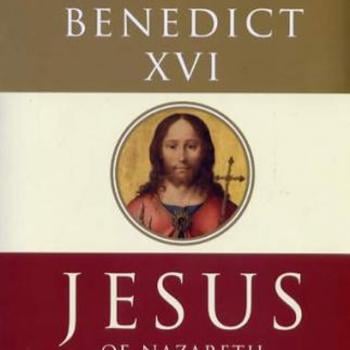The language is very familiar to anyone who knows the U.S. Declaration of Independence (and similar statements in Vietnam and others):
We hold these truths to be self-evident, that all men are created equal, that they are endowed by their Creator with certain unalienable Rights, that among these are Life, Liberty and the pursuit of Happiness.—That to secure these rights, Governments are instituted among Men, deriving their just powers from the consent of the governed,—That whenever any Form of Government becomes destructive of these ends, it is the Right of the People to alter or to abolish it, and to institute new Government, laying its foundation on such principles and organizing its powers in such form, as to them shall seem most likely to effect their Safety and Happiness.
Even amidst the bland theism of the Enlightenment, the founders of the United States recognized that natural law, and therefore freedom, rose and fell upon belief that God is the author of everything human. And while our understanding of what it means to proclaim belief in God has changed since then (and indeed, since the time of the Greeks or the Israelites or the early Church), what remains is a basic truth. "God" is a pronoun whose antecedent we do not know, but the pursuit of knowledge of that antecedent demands freedom. What we are seeing in our world today is evidence of how that desire manifests itself: as a hope for a better world, even in spite of the evidence of history. Another name for that hope, that desire, is God.





